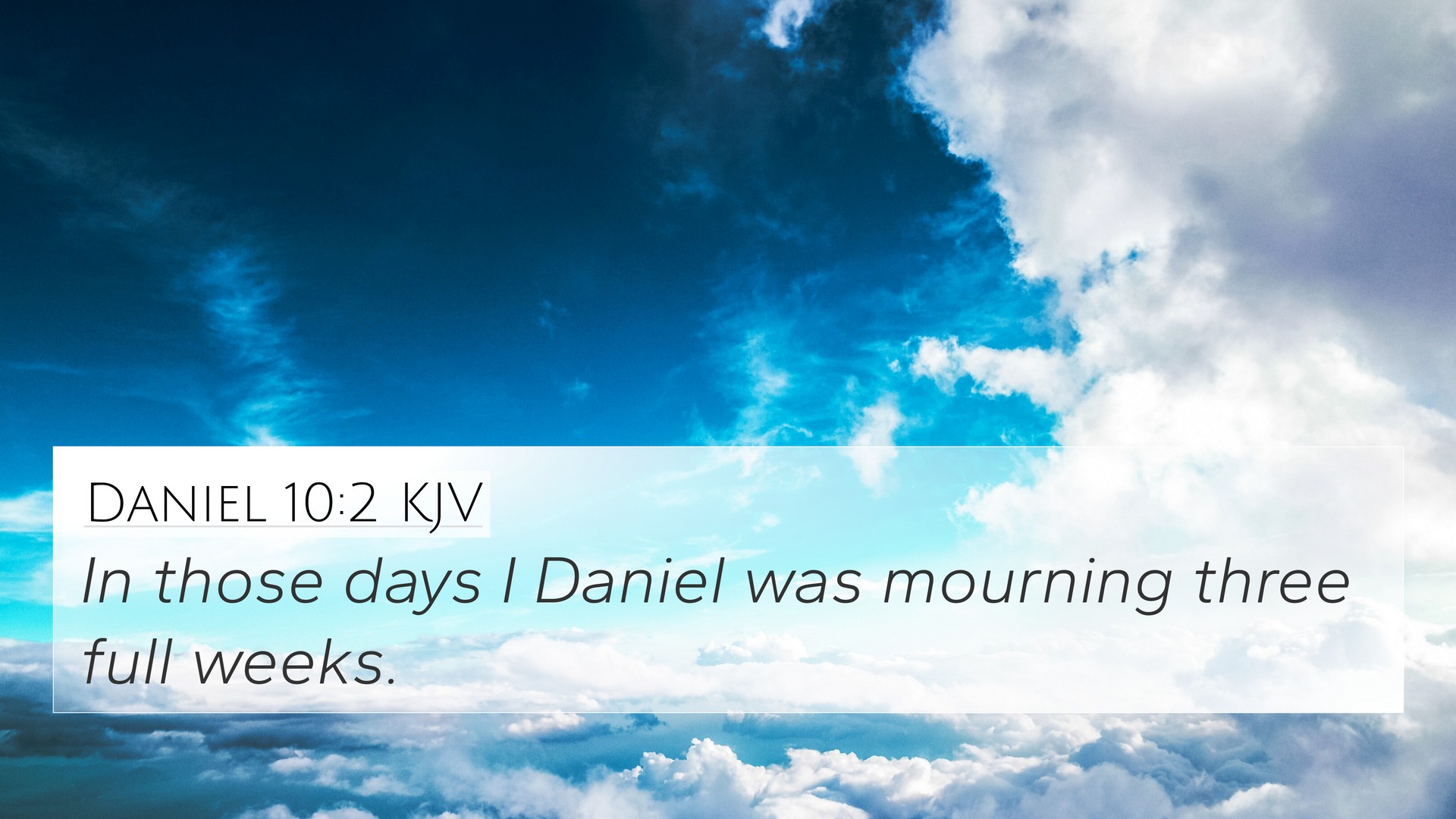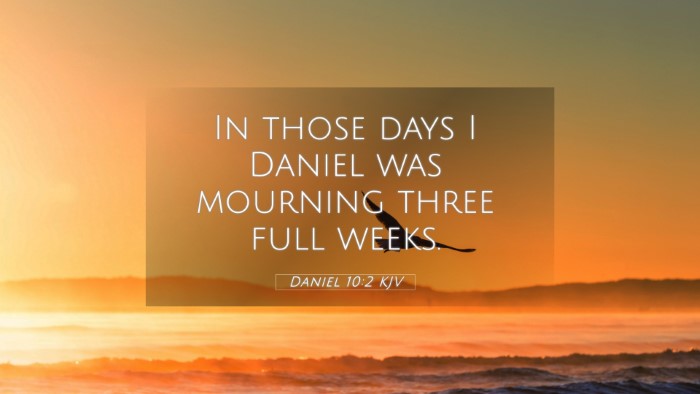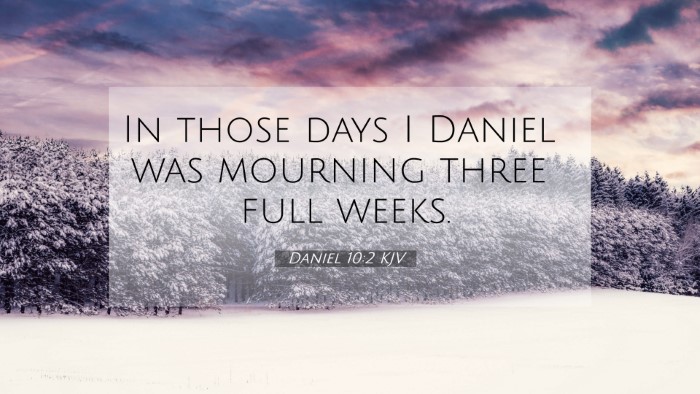Old Testament
Genesis Exodus Leviticus Numbers Deuteronomy Joshua Judges Ruth 1 Samuel 2 Samuel 1 Kings 2 Kings 1 Chronicles 2 Chronicles Ezra Nehemiah Esther Job Psalms Proverbs Ecclesiastes Song of Solomon Isaiah Jeremiah Lamentations Ezekiel Daniel Hosea Joel Amos Obadiah Jonah Micah Nahum Habakkuk Zephaniah Haggai Zechariah MalachiDaniel 10:2 Similar Verses
Daniel 10:2 Cross References
In those days I Daniel was mourning three full weeks.
Uncover the Rich Themes and Topics of This Bible Verse
Listed below are the Bible themes associated with Daniel 10:2. We invite you to explore each theme to gain deeper insights into the Scriptures.
Daniel 10:2 Cross Reference Verses
This section features a detailed cross-reference designed to enrich your understanding of the Scriptures. Below, you will find carefully selected verses that echo the themes and teachings related to Daniel 10:2 KJV. Click on any image to explore detailed analyses of related Bible verses and uncover deeper theological insights.
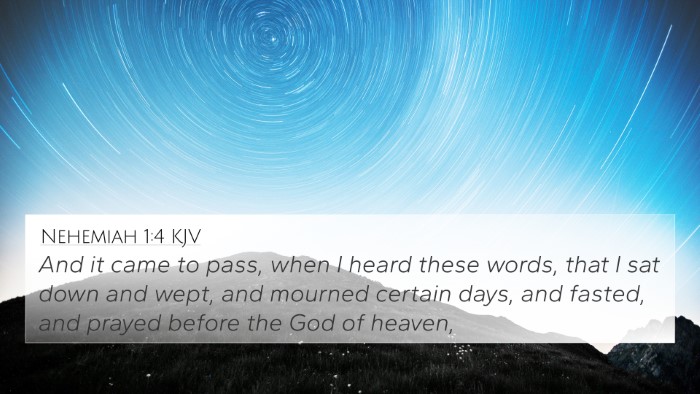
Nehemiah 1:4 (KJV) »
And it came to pass, when I heard these words, that I sat down and wept, and mourned certain days, and fasted, and prayed before the God of heaven,
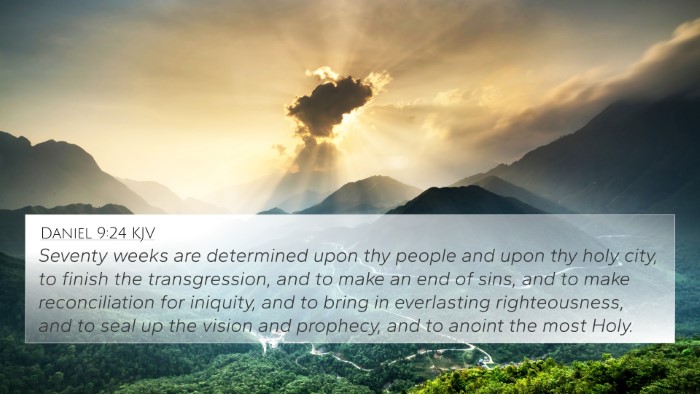
Daniel 9:24 (KJV) »
Seventy weeks are determined upon thy people and upon thy holy city, to finish the transgression, and to make an end of sins, and to make reconciliation for iniquity, and to bring in everlasting righteousness, and to seal up the vision and prophecy, and to anoint the most Holy.
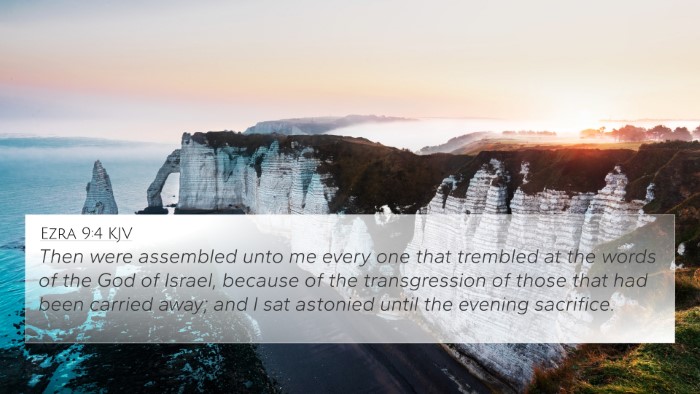
Ezra 9:4 (KJV) »
Then were assembled unto me every one that trembled at the words of the God of Israel, because of the transgression of those that had been carried away; and I sat astonied until the evening sacrifice.
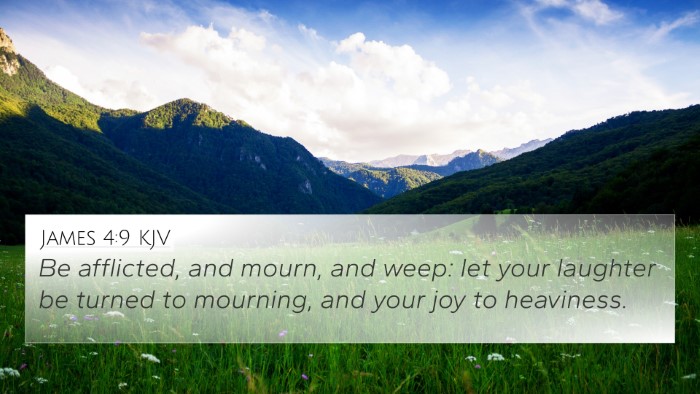
James 4:9 (KJV) »
Be afflicted, and mourn, and weep: let your laughter be turned to mourning, and your joy to heaviness.
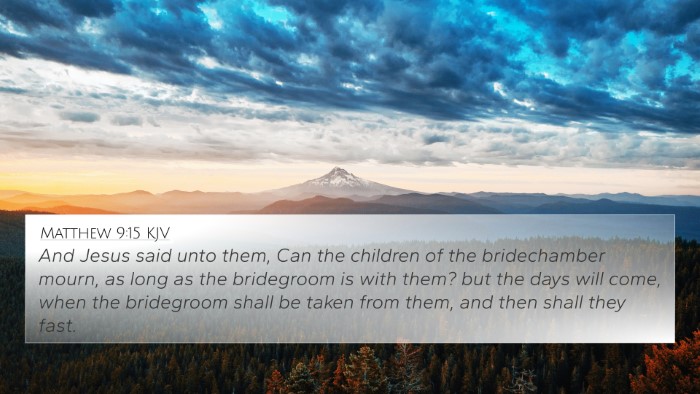
Matthew 9:15 (KJV) »
And Jesus said unto them, Can the children of the bridechamber mourn, as long as the bridegroom is with them? but the days will come, when the bridegroom shall be taken from them, and then shall they fast.
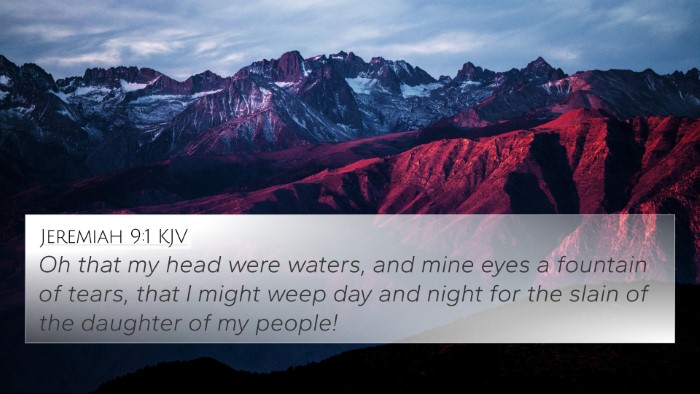
Jeremiah 9:1 (KJV) »
Oh that my head were waters, and mine eyes a fountain of tears, that I might weep day and night for the slain of the daughter of my people!
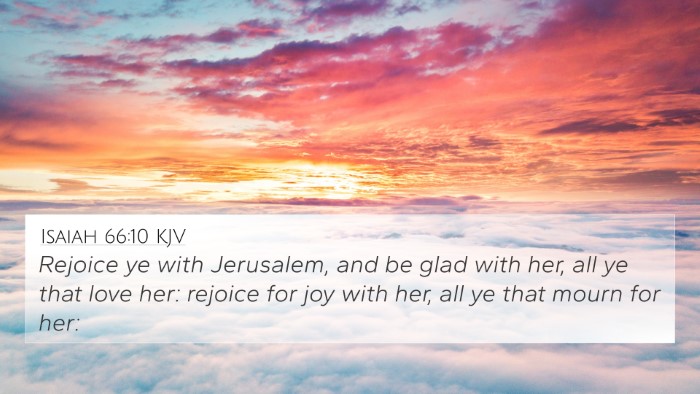
Isaiah 66:10 (KJV) »
Rejoice ye with Jerusalem, and be glad with her, all ye that love her: rejoice for joy with her, all ye that mourn for her:
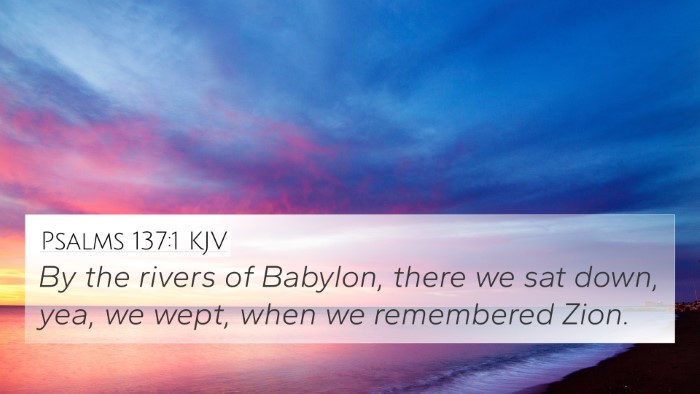
Psalms 137:1 (KJV) »
By the rivers of Babylon, there we sat down, yea, we wept, when we remembered Zion.
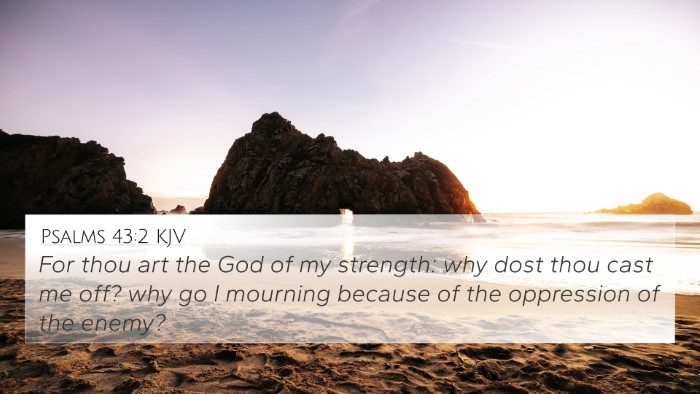
Psalms 43:2 (KJV) »
For thou art the God of my strength: why dost thou cast me off? why go I mourning because of the oppression of the enemy?
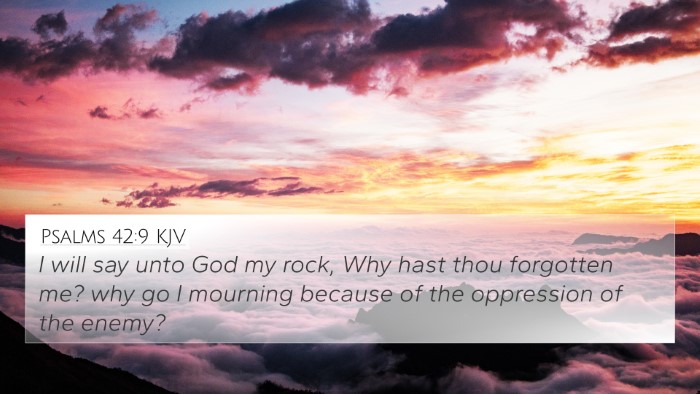
Psalms 42:9 (KJV) »
I will say unto God my rock, Why hast thou forgotten me? why go I mourning because of the oppression of the enemy?
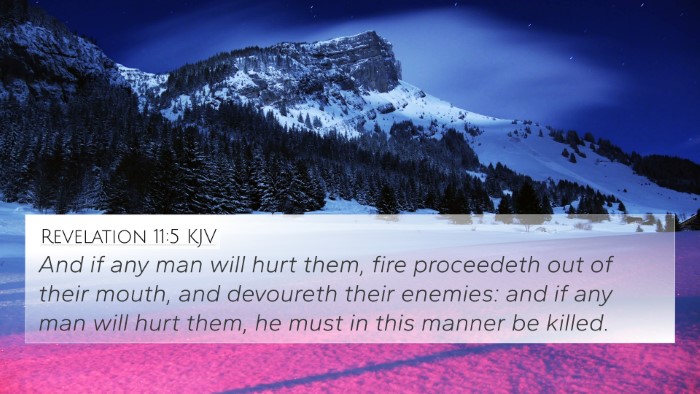
Revelation 11:5 (KJV) »
And if any man will hurt them, fire proceedeth out of their mouth, and devoureth their enemies: and if any man will hurt them, he must in this manner be killed.
Daniel 10:2 Verse Analysis and Similar Verses
Understanding Daniel 10:2
Daniel 10:2 states:
"In those days I, Daniel, was mourning three full weeks." (Daniel 10:2, NKJV)
Context and Importance
This verse sets the stage for a significant spiritual experience that Daniel had. It reflects his deep sense of mourning, prayer, and spiritual seeking, which is pivotal in understanding the revelation he ultimately receives.
Commentary Insights
-
Matthew Henry:
Henry emphasizes the seriousness of Daniel's mourning. This period of three weeks indicates not only a physical state but also a spiritual posture of humility and intercession. His mourning corresponds with the grave state of his people and the challenges facing Israel.
-
Albert Barnes:
Barnes notes that Daniel’s mourning and fasting reflect the gravity of his concerns. This indicates a time of seeking divine intervention for his nation and highlights the importance of prayer in moments of distress.
-
Adam Clarke:
Clarke points out the significance of a three-week period. In the Jewish tradition, such time frames symbolize completeness and may denote a period of serious supplication and confession before God in hope of His guidance.
Thematic Connections of Daniel 10:2
The verse connects with various themes in the Bible, particularly concerning prayer, mourning, and seeking God’s will.
Cross-References
- Daniel 9:3: This verse also features Daniel's key acts of fasting and prayer as he seeks understanding about the future of his people.
- Ezra 8:21: Ezra mourns and fasts, drawing parallels to Daniel’s spiritual urgency.
- Nehemiah 1:4: Reflects Nehemiah's mourning and prayer for Jerusalem, highlighting a pattern of intercessory mourning by the prophets.
- Isaiah 58:6-7: A reflection on the nature of fasting and its connection to genuine concerns for others, relating to Daniel’s motive.
- Luke 18:1: A reminder to pray continually and not lose heart, reflective of Daniel's persistent seeking.
- 2 Chronicles 20:3: Jehoshaphat’s fasting for guidance mirrors Daniel’s state of seeking divine help in crisis.
- Matthew 5:4: Blessed are those who mourn, for they will be comforted—underlining the value of sincere mourning before God.
Connecting Themes Across Scripture
Daniel’s mourning demonstrates a biblical principle where expressed sorrow leads to spiritual revelation:
- Intercessory Prayer: The connection with other Biblical figures shows the role of intense prayer in seeking God’s guidance.
- Spiritual Preparation: Mourning often prepares the heart to receive God’s message, as seen in various scriptural narratives.
- Transformation: Mourning leads to a transformative experience with God that is designed to yield understanding and hope.
Tools for Cross-Referencing
To engage more deeply with the connections between Bible verses, consider utilizing:
- Bible Concordance
- Bible Cross-Reference Guide
- Comprehensive Bible Cross-Reference Materials
Conclusion
Daniel 10:2 encapsulates a profound moment of spiritual seeking marked by mourning. It invites readers to reflect on the connections between their struggles and the enduring practices of prayer and fasting represented throughout the Bible. Engaging in cross-referencing and comparative analysis enhances understanding and brings forth the theological richness embedded in these themes.
